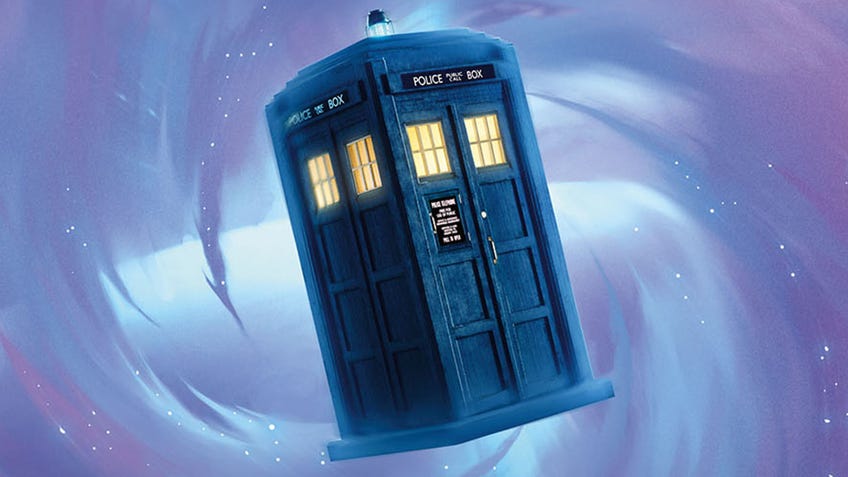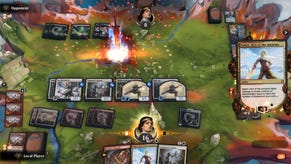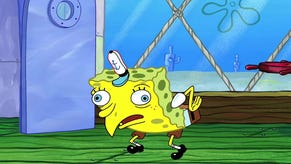Universes Beyond: Doctor Who is a triumphant meeting of the classic sci-fi show and Magic: The Gathering’s enduring card designs
OooooWEEEEwooooo.
The Universes Beyond: Doctor Who Commander decks are all pretty incredible. We’ve seen this style of Universes Beyond release before, thanks to last year’s Warhammer 40,000 crossover - and they were excellent decks too - so we’re not all that surprised about this, but there’s something to be said for bringing real people into Magic: The Gathering using a more familiar franchise for a wider range of ages.
We’ve seen actors portrayed on Magic: The Gathering cards before in the abysmal The Walking Dead Secret Lair drop from 2020. This time around, the Doctor Who MTG cards aren’t confined to an overpriced and ill-conceived product but one that we know people adore, because they’re Commander decks. At least one card has David Tennant’s face on it, too, which has to be worth something.
The Doctor Who set is made up of four different decks, each of which has its own colours, play style and main mechanic to boot. We like the choices here because it means that the decks don’t just feel like a different take on the franchise, but a new approach and a celebration of its various aspects.
The first deck is Blast from the Past, a green, white and blue deck that has a focus on the Historic mechanic. Historic is a keyword that debuted back in 2019 in the Dominaria set. It basically makes something happen when the cards involved are artifacts, legendaries or sagas. This deck also features the first eight Doctors, from William Hartnell to Paul McGann, and is basically a tour-de-force of the sci-fi TV show’s original run.
Timey-Wimey might be our favourite of the four decks because it feels as though it captures the idea of time travel the best.
Next is Timey-Wimey, which has the Christopher Ecclestone, David Tennant and Matt Smith doctors in it - or Ninth, Tenth and Eleventh. This blue, red and white deck has a focus on time counters, which means it leans heavily on Suspend and Vanishing.
Suspend still sees a bit of play in Commander, as it lets you skip casting spells in the normal way by putting them into exile and then taking time counters off of them until you can cast them for free.
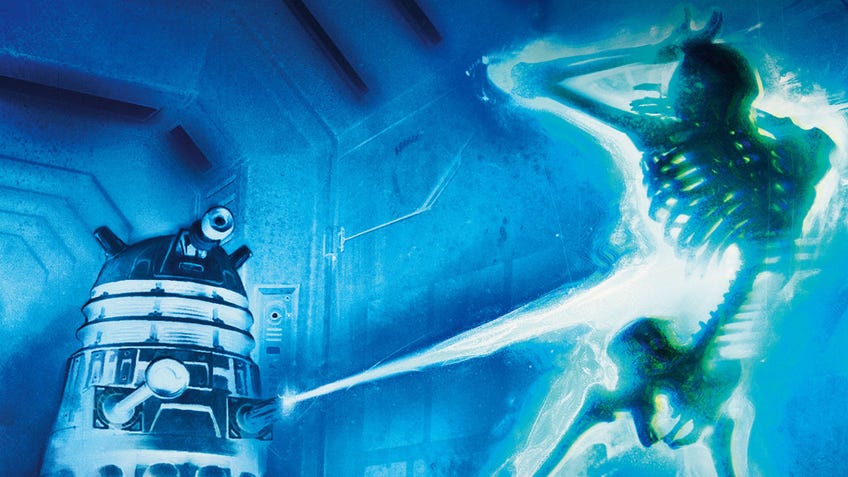
Vanishing is a lot more obscure. Vanishing effectively limits the number of turns a card can be in play for, with each turn causing a time counter to be removed from the card. When that card hits zero time counters, it has to be sacrificed. It’s a fun mechanic that serves to limit the power of otherwise overpowered cards, but the Timey-Wimey deck just benefits from it in general because The Tenth Doctor, the face card for the deck, can manipulate the number of time counters on a card.
Timey-Wimey might be our favourite of the four decks because it feels as though it captures the idea of time travel the best - and it doesn’t hurt that it has such a popular run of characters in it.
Paradox Power has the Twelfth and Thirteenth Doctors - or Peter Capaldi and Jodie Whittaker. This green, blue and red deck has a focus on casting spells from places that aren’t your hand. That means you’ve got cards that embrace exile or graveyard plays, and makes for a tricky-feeling deck that’s great if you like messing with expectations as you play.
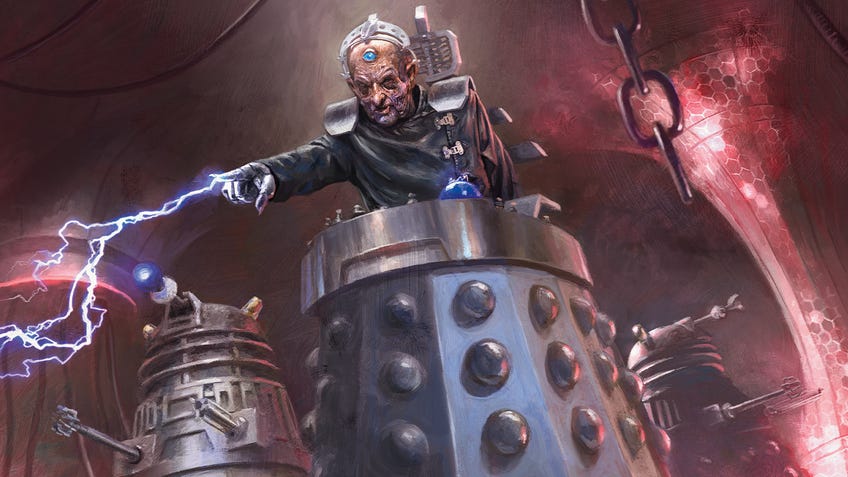
The final deck is Masters of Evil, a blue, black and red deck showcasing the great evils of Doctor Who. We’re talking daleks, cybermen and Missy. This deck is all about villainous choices, which are things that force an opponent to figure out what the lesser of any two evils is. It usually boils down to them having to choose to let something good happen to you, or taking something bad on their own shoulders. It’s a great way to represent the less combat-heavy feel of Doctor Who in general, and we’re big fans of the execution.
The collection is one of the coolest depictions of another pop-culture property we’ve seen in Magic: The Gathering yet.
The collection is one of the coolest depictions of another pop-culture property we’ve seen in Magic: The Gathering yet. It might just have skyrocketed up our list, coming in front of even the non-Universes Beyond Dungeons & Dragons sets. It’s another excellent example of just how creative the people at Wizards of the Coast are; their ability to create MTG cards that feel true to a franchise that’s inherently not about fighting is one that shouldn’t be overlooked.
So far, nearly every Universes Beyond we’ve had has been based on a franchise where the crossover is as much about violence as MTG is. Warhammer and Street Fighter are obviously near the top of the violence scale, but even D&D - while a great way to not fight in a game - is generally viewed as a way to enjoy combat or throwing buckets on people’s heads.
Doctor Who, while it does have its conflicts, is one where violence very rarely solves anything. On the one hand, that’s robbed us of an impossibly buff martial arts master of a Doctor. On the other, it shows off how effective words and plans can be. Doctor Who and his companions often overcome problems with effective forethought - or clever use of a Sonic Screwdriver.
Being portrayed in a game where you’re regularly smashing creatures into each other could have been tricky, but it’s not been an obstacle here. Though the creatures will all be fighting, the abilities of the cards feel true to each character’s intentions and identity. We can’t help but be impressed.
The design and feel of the decks is exquisite.
The only criticism really is of the cost, which is once again a little higher than standard decks - a bundle of all four will set you back around £200 or more.
Outside of that complaint, the design and feel of the decks is exquisite. It really makes us want to see the upcoming new series of Doctor Who crossing over into Magic: The Gathering as well - if only to see the Doctor and Jace have an argument about shoes or something.
